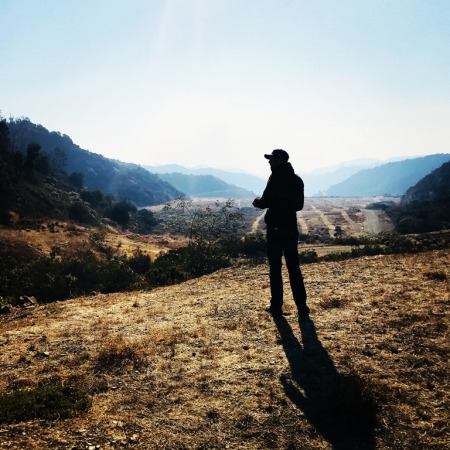The Dominion and Stewardship of Humanity Over God's Creation

If the cattle on a thousand hills are God's (Ps. 50:10), how can I brand them as "mine"?
In other words, how can the Bible teach stewardship and at the same time imply the importance of property rights?
Our current understanding of private property has its roots in the Bible. In the opening chapters of the creation story, God gives us property as a means by which we exercise our call to stewardship and dominion as we fill the earth and develop it.
Old Testament scholar Dr. Walter C. Kaiser, Jr., develops this theme in his paper Ownership and Property In the Old Testament Economy. Kaiser writes,
It was at creation that God the Creator committed the world and its resources to humanity (Gen. 1:28–29). It was because the man and the woman were made in the image of God that they were commanded to subdue the created order and to exercise dominion over the whole of it.
The idea of property ownership is an important biblical idea. The eighth commandment (Ex. 20: 15) exhorts, "You shall not steal." The Old Testament also condemns those who would move "property markers" and thieving of all kinds (Deut. 19:14, 27:17; Prov. 22:28, 23:10; Job 24:2); the New Testament continues the thread of teaching on respecting what belongs to others (Mk. 10:9; Lk. 18:20, 19:8; Rom. 13:9; 1 Cor. 6:9-10). These exhortations and commands all presuppose property rights or ownership.
Property Rights or Responsibilities?
There is a reason no civilization in the history of the world has flourished without strong property rights. It is one of the principles that God wove into the fabric of creation. It is like gravity; it works whether you believe it or not.
In a recent op-ed, Phil Gramm and Hernando de Soto underscore the importance of property rights to economic development.
Karl Marx saw private property as the source of wealth and called for its elimination to promote equality. A century and a half later, we know that a country without a formal system for registering property rights limits its own economic development and prevents its citizens from realizing their full potential.
We in the West have flourished because of the biblically-rooted concept of property rights, but this is not the case around the world.
In his groundbreaking book, The Mystery of Capital, Hernando de Soto explains why property rights are essential to helping poor nations lift themselves out of poverty. According to estimates made by The Institute for Liberty and Democracy, two-thirds of the world's population lack secure property rights, yet have access to undeveloped resources and assets in their countries worth an estimated $170 trillion. While not often mentioned, this is one of the root causes of poverty in many nations today.
Property Rights As a Stewardship Tool
How, then, can we as Christians understand property rights as a tool to help us live out whole-life stewardship? Again, Kaiser's writing is helpful:
Private property is both a gift and a certain type of power God has entrusted to humanity as stewards. It was God's intention that mortals should be equipped with this gift and power and that under God they should exercise dominion over the earth.
The key to understanding how to tie the biblical ideas of stewardship and property rights together lies in the correct application of the concept of dominion described in Genesis 1:28.
In the beginning, God gives us dominion over the physical creation. But, in our culture today, the word dominion conjures up the image of forceful domination and aggressive or violent destruction. This is not the idea Moses is trying to convey in the opening chapter of Genesis.
Dominion in Genesis 1 speaks to responsibility. As Francis Schaeffer writes:
Fallen man has dominion over nature, but he uses it wrongly. The Christian is called upon to exhibit this dominion, but exhibit it rightly: treating the thing as having value itself, exercising dominion without being destructive.
Dominion is the power God has given us to transform his creation: to subdue the earth, making it an incredible place for God's images to flourish.
Unfortunately, today's church has a kind of one-dimensional understanding of stewardship. Biblical stewardship is not just maintaining the status quo; it implies human achievement.
As my friend Justin Holcomb writes:
God gives us the opportunity to reflect him in his work of caring for and transforming all of creation. To follow this aspect of our multifaceted calling as humans is to image in our lives the One who is at work in the world and in human life, creating, sustaining, and liberating creation.
The call on all the work we do in our families, churches, communities, and vocations is to bring more flourishing to the communities we serve—to make everything better, even those things that are not broken. Therefore, we need to see stewardship as the means by which we transform God's creation, and property rights are one of the tools God has given us to accomplish this mission.
Stewardship Means Not Resting on the Status Quo
Remember the parable of the talents (Matt. 25:14-30). There is an implied responsibility for the servants in this story to use the money in a way the owner intended. At the end of the story, the one servant who is severely rebuked is the one whose concern was to maintain the status quo, or do nothing to tend, care for, or bring an increase from what he was given.
We don't want to be that guy.
This article is copied with permission from the Institute for Faith, Work & Economics (www.tifwe.org). The original article appeared here. IFWE is a Christian research organization committed to advancing biblical and economic principles that help individuals find fulfillment in their work and contribute to a free and flourishing society. Visit https://tifwe.org/subscribe to subscribe to the free IFWE Daily Blog.




















